Click Create Spherical
Environment
 in Scene Editor toolbar (Create Environment sub-toolbar)
to create an environment being a non-dimensional sphere with two hemispheres:
Top and Bottom.
in Scene Editor toolbar (Create Environment sub-toolbar)
to create an environment being a non-dimensional sphere with two hemispheres:
Top and Bottom.
Zoom out then click anywhere in the geometry area to
deselect the environment.
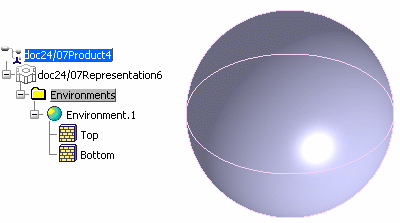
Right-click the environment
in the specification tree and select Properties. The
Properties dialog box is displayed.
Select the Dimensions tab which enables you to define
the environment size as well as the geometry type:
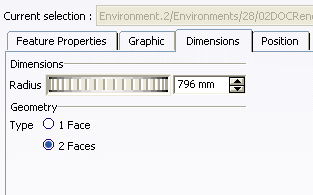
Select 1 Face then click OK or Apply
then OK to validate.
As the environment is changed into a one-face environment,
the Top wall is extended to the whole sphere
and the bottom wall disappears as indicated by the specification
tree:

Select the Top wall in the specification
tree.
Right-click then select Top object
> Definition.
The Properties dialog box is displayed:
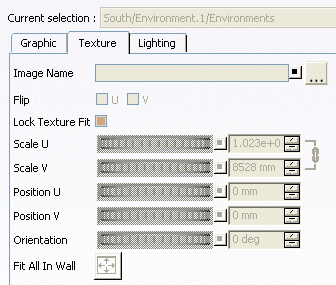
Click
 next to the Image Name box to search for the appropriate
image.
next to the Image Name box to search for the appropriate
image.
Search or import the desired image using
the Object Selector.
For more information on how to use this dialog box refer to
Using the Chooser in the Infrastructure User Guide.
Click OK to validate and go
back to the Properties dialog box:
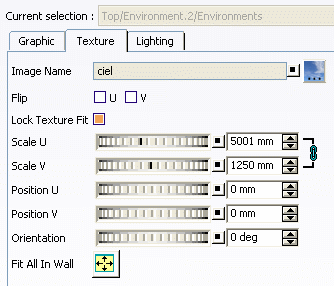
Click OK or Apply
then OK.
The texture image you selected is mapped continuously onto
the whole environment as shown below:
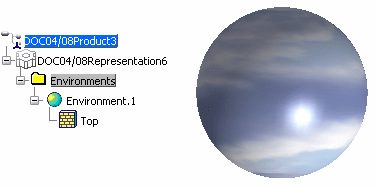
As for a standard environment, you can
Creating a Standard Environment the one-face environment and modify its
Creating a Standard Environment and
Creating a Standard Environment.
Whenever you wish to switch from one to
two faces, re-access the environment properties (by right-clicking the
environment in the specification tree then selecting Properties)
and select 2 Faces.
In that case, the Bottom wall
appears as it was before switching to 1 Face. In our example,
no texture image has been applied to Bottom wall before and
thus, the environment looks like this:
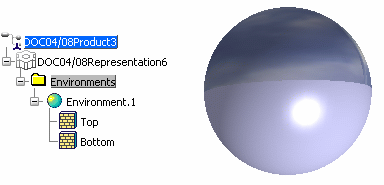
Note that when the
Creating Real Time Ground Shadowsoption is activated, shadows are cast on the
environment as well.